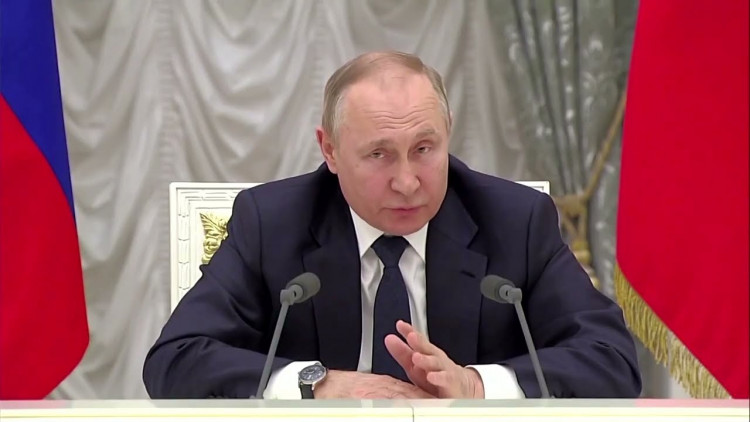As a result of Western sanctions, Russian President Vladimir Putin said Thursday that Moscow is in the process of diverting its commerce and oil exports to BRICS nations.
Following Russia's invasion of Ukraine on February 24, the West imposed extensive sanctions, including limitations on oil supplies.
The members of the BRICS group are Brazil, Russia, India, China, and South Africa. Their economies account for more than 40% of the world's population and about a quarter of the world's gross domestic product.
Russia is attempting to build tighter ties with Asia to replace the markets it lost in the EU and the U.S. in order to withstand the sanctions.
Putin condemned, via video connection at the start of a BRICS business meeting, the "permanent imposition of fresh politically motivated sanctions that contravene common sense and fundamental economic logic."
Western partners disregard the fundamental principles of market economy, free trade, and private property, the Russian president disclosed.
He advocated for the strengthening of group bonds. According to Putin, Russia was considering boosting the presence of Chinese cars on the Russian market as well as the opening of Indian retail chains.
Russia is expanding oil exports to China and India. "Agricultural cooperation is expanding at a rapid rate," Putin said, pointing out that the selling of Russian fertilizer to BRICS nations is also a priority.
He noted that Russia is establishing "alternative international transfer mechanisms" with BRICS allies and an "international reserve currency" to lessen its reliance on the dollar and euro.
China, India, and South Africa refrained from voting on a resolution denouncing Russia's invasion of Ukraine at the United Nations.
The situation in Ukraine has sounded an alarm for humanity, Chinese leader Xi Jinping said in his remarks at the forum's opening, as China maintains its neutral stance while supporting its partner Russia.
Xi warned via video link to the event that countries will inevitably face security difficulties if they lay blind reliance on their positions of strength, expand military alliances, and pursue their own protection at the expense of others.
History, according to Xi, has demonstrated that hegemony, group politics, and confrontations between blocs "do not produce peace or stability, but rather war and struggle," he added.
In other remarks, Xi stated that the imposition of sanctions may operate as a "boomerang" and a "double-edged sword," and that the global community would suffer if global economic patterns and financial flows were "politicized, mechanized, and weaponized."





